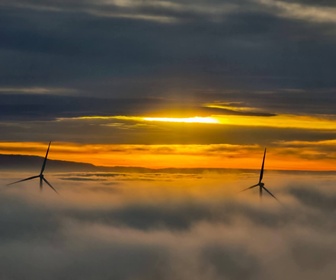Following the outbreak of COVID-19, Ørsted activated its Corporate Crisis Management Organisation, which is headed by the Executive Committee and chaired by CEO Henrik Poulsen, to steer Ørsted through the unfolding global crisis. Ørsted closely follows the situation in the markets in which the company operates and implement national guidelines and regulations. This includes preventive measures such as travel and commute restrictions, working from home, splitting of teams, quarantine policy for infected and potentially infected employees, and enhanced hygiene at all locations.
Ørsted’s operational and financial situation remains stable. The company maintains continuity in all business-critical operations. In particular this means:
- their asset base is fully operational at availability rates within the normal range
- construction projects are all progressing according to plans
- due to the hedging programme, the company remains largely shielded in the short to medium term from the current extreme market volatility and see limited risk of being materially impacted by decreasing gas and power prices as well as volatile currency rates
- the company's liquidity reserve is sized to support their investments in renewable energy projects. Ørsted currently has more than DKK 30 billion in liquidity reserves (cash, cash equivalents, and committed facilities), which can support their operations and construction programmes through 2020 and 2021 without further funding.
The companies sees the following risks potentially impacting their activities:
- Travel restrictions and quarantined employees may impact their ability to keep site operations and their internationally staffed service operation vessels fully manned. This may over time impact the availability of wind farms. However, Ørsted sees no COVID-19-related impact on availability so far.
- Travel restrictions and quarantines may impact our suppliers’ delivery of critical components to projects currently under construction. Their construction projects continue to progress according to plan and with embedded contingencies that, to a certain extent, can mitigate potential delays. And currently,
- Ørsted does not see any permits, consents, tax credits, offtake agreements, etc., in relation to construction projects being at risk due to delays.
- As to the development pipeline, the company remains dependent on public authorities to progress the permitting and consenting of awarded projects and development sites, and to progress the development of regulatory frameworks, including tenders and auctions. Such processes could be exposed to risk of delays due to travel restrictions, people working from home, and government stakeholders being occupied by crisis management.
- Likewise, signed divestments could be at risk of delays as approval processes must be conducted virtually. However, all divestments remain well in progress and the company expects potential delays to have limited impact.
While Ørsted recognises the significantly increased global uncertainty, its business model remains resilient, its operations remain stable, and the company maintains its financial guidance for 2020.









